- Home
- Bobby Akart
Asteroid Diversion Page 3
Asteroid Diversion Read online
Page 3
Chapter 2
Friday, April 13
Presidential Emergency Operations Center
The White House
Washington, DC
In the White House, the mood was anything but celebratory, and President Mack Watson’s demeanor was far from jovial. Unlike his Russian counterpart, who was shaking hands and patting backs for a job well done, the U.S. president had a panicked look on his face as he was rushed into the bowels of the East Wing toward the Presidential Emergency Operations Center, commonly referred to by its acronym, PEOC.
In the early years of the Cold War, beginning in the 1950s and continuing through the Reagan administration of the ’80s, America’s defense warning system evolved from duck-and-cover protocols to advanced computerized responses being initiated to defend the nation’s citizens and prepare the military for an attack.
The PEOC, initially constructed during the Roosevelt administration, had undergone substantial changes over many decades so that it was impenetrable to any form of nuclear missile threat.
President Watson glanced up at the low-hanging ceilings and the elaborate network of pipes that contained hardened wiring designed to protect the facility’s electronics from an electromagnetic pulse attack. In the event of a nuclear-delivered EMP, the PEOC’s communications and mechanical equipment wouldn’t be destroyed by the massive burst of energy.
The president was escorted through the final stretch of tile-covered hallway into a reception area. Several members of his cabinet had gathered in the small conference room near the entryway. He nodded his head toward them, but was abruptly pulled away by his security team toward a large conference room that adjoined the main command and control center of the PEOC.
White House Chief of Staff Maggie Fielding was huddled around the conference table with several aides and uniformed members of the military. She was the first to notice the president enter the room.
“Mr. President!”
Everyone came to attention and stood to the side so the president could make direct contact with Fielding.
“Maggie, what the hell happened?”
She gestured toward a chair at the head of the conference room table, but the president didn’t move. He glanced through the large one-way mirror that overlooked the PEOC’s nerve center, the equivalent of the Situation Room that was located below the Oval Office in the West Wing.
He began to pace the floor, which was his nature, causing the other occupants of the conference room to make way. He strutted back and forth along the wall of mirrored windows, periodically stopping to observe the frantic activity going on below them, and turned to Fielding as she spoke.
“Mr. President, we are still awaiting details from our recon satellites. We’ve analyzed video obtained from the news networks, as well as footage provided to us by India. It’s apparent that shortly after the main-engine cut-off phase of the launch, at which time the orbiter came under its own power, a tactical ballistic missile of unknown origin and throw-weight struck the spacecraft, completely obliterating it.” The throw-weight of a ballistic missile refers to its nuclear payload.
“Come on, Maggie, we know it came from Russia!” The president was incensed, losing concern for his safety after entering the PEOC.
“That’s just it, Mr. President. We have no indication, nor do any of our allies, that the missile was launched from Russia or any other land-based battery.”
“Air-launched?”
“Possibly, sir. Again, based upon our best suppositions, the Russian Kh-47M2 Kinzhai air-launched ballistic missile certainly has sufficient range to down our orbiter. If they were tracking Falcon Heavy’s launch and had intentions of shooting it down, then this ordnance could easily make that happen.”
“Then drag their asses over here and demand some answers!”
Chief of Staff Fielding once again gestured for the president to take a seat. “Sir, please, would you like to sit down?”
“No, Maggie. Out with it! What else is there?”
Fielding inhaled and continued. “Sir, there is a real possibility that the origin of the missile was space based.”
The president turned toward the glass and raised his arms over his head, pressing his palms against the window frame. He was eerily calm as he asked, “Are you saying Moscow has ballistic weapons deployed in space?”
Fielding, whose military point of view was invaluable during a crisis like this one, quickly responded, “Russia’s Aerospace Defense Forces successfully created a hypersonic interceptor missile that is certainly capable of destroying our orbiter. It has never been deployed to space, as far as our intelligence has been able to confirm.”
“Do they have other means of bringing down the orbiter?” the president asked.
“Sir, this might have been done via laser technology. Both of our Defense Departments have been working on putting interceptors in space. The difference is that we’ve abided by the treaties and, based upon the initial analysis of the explosion, they have not.”
President Watson turned to Fielding, who was now joined by the chairman of the Joint Chiefs. “How am I supposed to give direction and formulate a response without information? Right now, three hundred million plus Americans think I’m a fool. I promised them we’d keep them safe. Now our means of doing so, not to mention the lives of eleven damn fine astronauts, is scattered all over Greenland.”
The president wasn’t a military veteran, but he certainly respected the work they’d done in protecting the nation from attack. He felt the need to rush out of the conference room and get away from the eyes that were awaiting him to take leadership, or ownership, of what had happened.
He had been stupid to include a nuclear payload in the Falcon Heavy launch. The Russians were always one step ahead of the U.S. For all he knew, Putin had a man in the room at that very moment.
“I need to walk, and think. Give me ten minutes, and when I return, I want to know when I’ll be face-to-face with the Russian ambassador, and more importantly, I need to discuss our next move against the asteroid.”
“But, Mr. President, there isn’t—”
“Maggie, I’m not going to sit in here and commiserate or wring my hands. You folks get your game plan together and brief me in ten minutes.” The president walked out of the conference room and turned toward the carpeted stairwell that led to the multilevel PEOC operations center. Then he shouted, “And get me that damned Russian ambassador!”
Chapter 3
Friday, April 13
Presidential Emergency Operations Center
The White House
Washington, DC
President Watson paced along the upper level of the theater-style operations center. He tried his best to appear presidential, commander-in-chief-like, but his emotions came through. Putin had gotten the better of him, and it would make him look weak in the eyes of world leaders and especially the American citizens.
Politically, he’d be in a much stronger position if he hadn’t insisted on including a last-resort nuclear payload on board the orbiter. NASA had gone along with his directive reluctantly because they were fully aware of the threat IM86 posed to humanity. The president didn’t have the time to go to the United Nations to debate the matter, only to be vetoed by the UN Security Council. He had to be bold, and his go-it-alone approach might have cost the lives of eleven American astronauts.
He stopped to rub his temples as a headache began to set in. His doctor had counseled him about his stress levels, and since he’d learned that he had a forty-seven percent blockage in his carotid artery, he’d heeded the warnings. He cut out the alcohol, changed his eating habits, and incorporated some moderate exercise into his routine. However, the nation’s chief adversary, President Vladimir Putin, a pain in the neck of every administration for decades, remained one for President Watson.
The two prior administrations had placed a heavy emphasis on creating a space force and colonizing the Moon. Many believed the Space Force, designed to be an independent
branch of the military, was absolutely essential to promote U.S. dominance in space and necessary to protect national security. Others argued that weaponizing space would militarize a domain where peaceful cooperation should prevail.
Then the Chinese landed a rover on the far side of the Moon, and the stakes were raised. His predecessor intended to focus his administration’s limited budget on establishing a lunar outpost, and the successful mining operation was applauded around the globe.
Putin, however, had other plans for his budget. While Americans were digging up dirt and rocks on the Moon, he’d beat the Americans into space with a weapons defense system, and now they’d effectively destroyed a nuclear-laden space orbiter.
President Watson recalled a campaign speech he’d made just a year prior at a rally in Brevard County, Florida. The words rang in his head as he stared at the monitors below him, many of which were replaying the point of impact in slow motion.
“In a way, space is already a competitive and a militarized domain. The task now is to protect U.S. and allied military interests in space and to guard against catastrophe resulting from overreaction. That means both strengthening U.S. capabilities to deter and defend against strikes on its satellites and working with other nations to establish accepted rules of engagement.
“The most important norms are against attacks on so-called strategic-warning satellites, which underpin nuclear deterrence by detecting missile launches in real time. The reasoning is obvious. Such attacks could be interpreted as a prelude to a nuclear strike and result in unintended nuclear war.”
Russia was notorious for using cyber warfare as a prelude to invading another nation. Their cyber attacks had caused instability in Georgia, Estonia, Lithuania, Ukraine, and Venezuela before the Russian military gained a foothold. President Watson envisioned a similar military tact in which Russia would disable America’s reconnaissance satellites prior to a nuclear attack.
He began to process the events surrounding the orbiter’s destruction. The Russians had made no statement, and they hadn’t made any additional overt militaristic moves. Although the ramifications of these events for both countries were monumental, there was no time to debate geopolitical brinkmanship. He still had to deal with the incoming asteroid.
His chief of staff interrupted his thoughts. “Mr. President, the Russian ambassador has arrived.”
“Good, Maggie, let’s hear what he has to say. Am I meeting him in the conference room or upstairs?”
“Sir, under the circumstances, because of the uncertainty in all of this, we’ve set up a video conference with him from the Diplomatic Reception Room.”
The Diplomatic Reception Room served as an entrance to the White House from the South Grounds for arriving ambassadors. Oftentimes, the president would meet his guest there for a more formal gathering. Sometimes, depending on the nation, the ambassador was shown directly into the Oval Office. The Russian ambassador hadn’t made it past the Diplomatic Reception Room in a dozen years.
As Chief of Staff Fielding led the president back to the conference room, she provided him a quick update. “Sir, we have an additional complication.”
“Wonderful,” he responded sarcastically.
“The nuclear detonation, caused by what appears to be a ballistic missile striking the orbiter, sent an electromagnetic pulse through the atmosphere, resulting in power outages from Eastern Quebec Province into Greenland and Iceland.”
“Okay, what else?” At the moment, the president was unconcerned with the collateral damage of this debacle.
“Moscow has fired a preemptive diplomatic shot across our bow, sir.”
“Let me guess, they’ve filed a complaint with the United Nations over our sending a nuke into space.”
“Yes, sir. They’re taking the moral high ground, sort of.”
“Putin’s a crafty devil. I’ll give him that. Well, this certainly changes our approach to what happens next.”
“I don’t know that we can trust any of this, Mr. President. We always have to work under the assumption that further hostilities are imminent.”
“Maggie, do you think Moscow wants a nuclear war with us? The timing doesn’t make—” The president paused his own thought. Actually, the timing was perfect. His administration was preoccupied with the impending threat. His mind entered an inner debate.
Should I order the Pentagon to retaliate, or defend? Do I abandon our efforts to deal with the asteroid, trusting the Russians to successfully divert or destroy it?
“Mr. President? Sir? Do you need a moment before we return to the conference room? The Joint Chiefs are present, as well as the directors of our intelligence agencies. Maybe I should get you a glass of water or something?”
He stopped and smiled. “No, Maggie. I’m all right. When they knock you down, you just get back up again. You know, back in the saddle. I can’t wait to hear the horseshit spewed by the ambassador. Let’s listen to him and send him on his way. Afterwards, I want to focus on saving our planet from the asteroid. I’ll deal with Moscow later.”
Chapter 4
Friday, April 13
Presidential Emergency Operations Center
The White House
Washington, DC
The Russian ambassador played it perfectly, and exactly as he was instructed by President Putin. He apologized on behalf of the Russian Federation for the lives wasted by the Americans’ poor choices. He pointed out that their use of a superior missile defense system proved necessary because the Americans’ nuclear payload was launched into space without notice to the nation-states of the UN Security Council, and they had no idea what the Americans’ intentions were. Finally, the ambassador pledged to work in full cooperation with the Americans in whatever way possible to face the real threat posed by 2029 IM86.
The video conversation lasted just over five minutes. The president was in no position to force the issue because he’d knowingly violated treaties himself. He too pledged a spirit of cooperation, although he wasn’t certain what that entailed. The conversation was beginning to wind up with mutual promises to dispel any thoughts of retaliation, or escalation, in the interest of saving mankind from the real threat.
Then the president, a former judge and Chicago Cubs fan, threw a curveball at the ambassador. “Mr. Ambassador, there’s just one more thing.”
“Yes, Mr. President, of course.”
“When was the Russian Federation aware of this asteroid that has been designated IM86?”
“Well, of course, that would’ve been three years, ag—” The ambassador caught himself and feigned a coughing fit. He began to hack and choke so much that a White House staffer rushed to his side with a bottle of water, which he quickly consumed.
The president squinted his eyes, recognizing the ambassador’s deflection immediately. “Mr. Ambassador, are you all right?”
The Russian grimaced and nodded his head, taking the opportunity to gather his thoughts as he took another gulp of water. “Yes, of course, Mr. President. I am. It has been a difficult morning for us all. I will relay your sentiments to President Putin. Thank you.”
The ambassador stormed away from the camera and could be heard speaking to his aides in Russian.
“Mr. President, shall I stop him at the door?” asked Fielding.
“No, he gave us the answer. The Russians have known about IM86 for three years, and based upon our intelligence gathered from the Cosmodrome, their intentions are clear. They intend to stake their claim on the asteroid and, apparently, will stop at nothing to do so.”
“Sir, do you think they shot down our orbiter on purpose? To delay our attempts to place our own team on the surface of the asteroid?”
The president stood and began his nervous pacing again. “Maggie, I think it’s a distinct possibility. Many questions have now entered my mind, from when did they discover IM86, to whether they deliberately shot down our people.”
“Mr. President,” interrupted the chairman of the Joint Chiefs, “treaties as
ide, they’ve committed an act of war, for which we should retaliate.”
“Very true, General, but this is why Putin’s move with the UN was brilliant. He preempted our accusations by claiming self-defense. He was one step ahead of us, leaving us playing catch-up, as always.”
Fielding tried to bring the conversation back to the president’s primary concern—the asteroid. “Whether it was their hypersonic interceptor, or laser technology obtained from the Chinese, we’re back at square one on dealing with the threat to us all. We simply cannot wait to see if the Russians can successfully land on the surface, much less execute a diversionary maneuver.”
“I agree,” said the president. “Have we heard from NASA?”
“Yes, sir,” replied the Secretary of Defense. “I hope I haven’t overstepped, but as soon as I observed mission failure, I contacted Acting Administrator Frederick and told him to take a moment to mourn the dead, then consider how many more lives are at stake if he doesn’t come up with a solution.” Jim Frederick was a former congressman who had been nominated by the president to head up the space agency.
President Watson leaned against the back of a leather chair and twirled it on its base. He did not sit the entire time during the briefing. “I realize the projected impact date is two weeks off, but it was my understanding that our window of opportunity to employ the orbital slingshot method ended today. Am I wrong? What did Jim say?”
“No, sir, you are not wrong,” replied the Secretary of Defense. “Frederick is a pragmatist and he laid out the situation in very simple terms. Our eleven best astronauts are dead. The remainder of active-duty astronauts are primarily academics, you know, scientists, astronomers, etcetera.”
“What’s the point?” asked the president.
“Well, sir, the point is Frederick thinks our best option, no, maybe our only option, is to nuke it.”

 Geostorm The Collapse: A Post Apocalyptic EMP Survival Thriller (The Geostorm Series Book 3)
Geostorm The Collapse: A Post Apocalyptic EMP Survival Thriller (The Geostorm Series Book 3)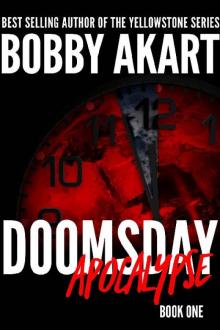 Doomsday Apocalypse
Doomsday Apocalypse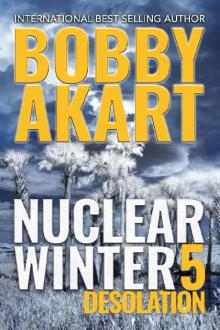 Nuclear Winter Desolation: Post Apocalyptic Survival Thriller (Nuclear Winter Series Book 5)
Nuclear Winter Desolation: Post Apocalyptic Survival Thriller (Nuclear Winter Series Book 5)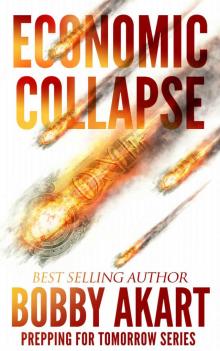 Economic Collapse (Prepping for Tomorrow Book 2)
Economic Collapse (Prepping for Tomorrow Book 2)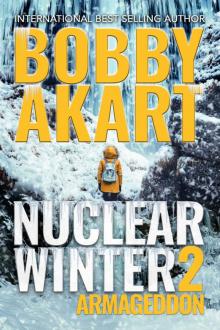 Nuclear Winter Armageddon
Nuclear Winter Armageddon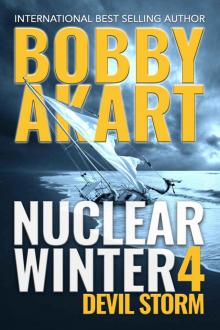 Nuclear Winter Devil Storm
Nuclear Winter Devil Storm Virus Hunters 3: A Medical Thriller
Virus Hunters 3: A Medical Thriller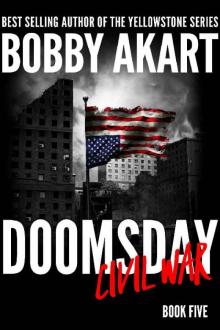 Doomsday Civil War: A Post-Apocalyptic Survival Thriller (The Doomsday Series Book 5)
Doomsday Civil War: A Post-Apocalyptic Survival Thriller (The Doomsday Series Book 5)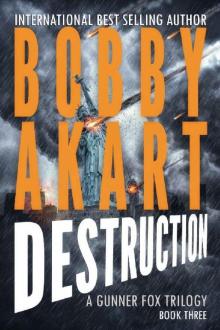 Asteroid Destruction
Asteroid Destruction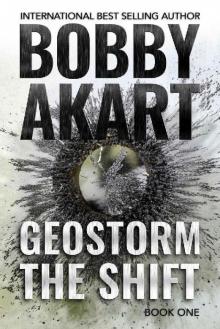 Geostorm the Shift
Geostorm the Shift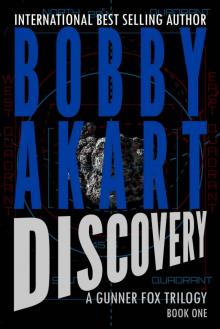 Asteroid Discovery
Asteroid Discovery Virus Hunters 2: A Medical Thriller
Virus Hunters 2: A Medical Thriller Geostorm The Shift: A Post-Apocalyptic EMP Survival Thriller (The Geostorm Series Book 1)
Geostorm The Shift: A Post-Apocalyptic EMP Survival Thriller (The Geostorm Series Book 1)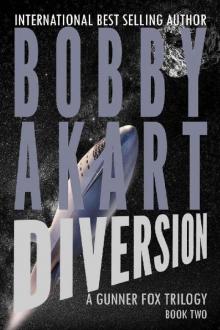 Asteroid Diversion
Asteroid Diversion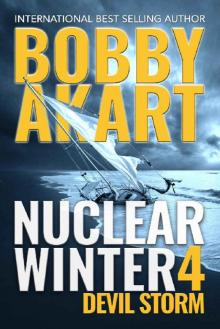 Nuclear Winter Devil Storm: Post Apocalyptic Survival Thriller (Nuclear Winter Series Book 4)
Nuclear Winter Devil Storm: Post Apocalyptic Survival Thriller (Nuclear Winter Series Book 4)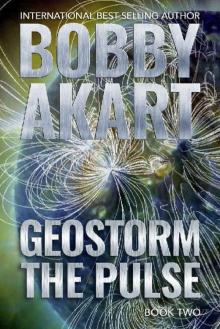 Geostorm The Pulse: A Post Apocalyptic EMP Survival Thriller (The Geostorm Series Book 2)
Geostorm The Pulse: A Post Apocalyptic EMP Survival Thriller (The Geostorm Series Book 2)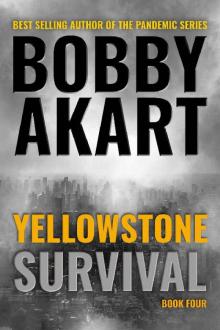 Yellowstone: Survival: A Post-Apocalyptic Survival Thriller (The Yellowstone Series Book 4)
Yellowstone: Survival: A Post-Apocalyptic Survival Thriller (The Yellowstone Series Book 4)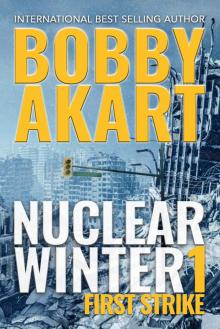 Nuclear Winter First Strike: Post-Apocalyptic Survival Thriller
Nuclear Winter First Strike: Post-Apocalyptic Survival Thriller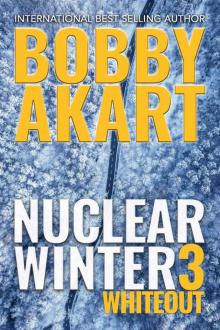 Nuclear Winter Whiteout
Nuclear Winter Whiteout Doomsday Anarchy
Doomsday Anarchy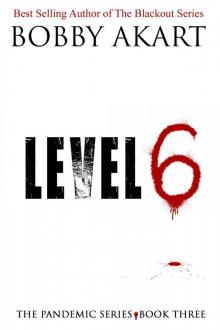 Pandemic: Level 6: A Post Apocalyptic Medical Thriller Fiction Series (The Pandemic Series Book 3)
Pandemic: Level 6: A Post Apocalyptic Medical Thriller Fiction Series (The Pandemic Series Book 3) Martial Law
Martial Law Odessa Reborn: A Terrorism Thriller (Gunner Fox Book 4)
Odessa Reborn: A Terrorism Thriller (Gunner Fox Book 4)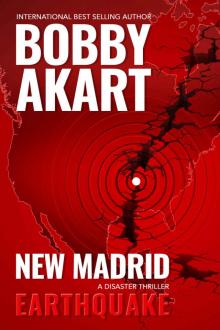 New Madrid Earthquake
New Madrid Earthquake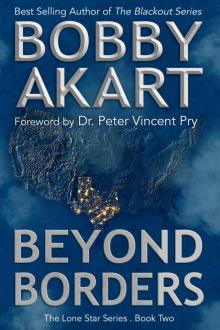 Beyond Borders: Post Apocalyptic EMP Survival Fiction (The Lone Star Series Book 2)
Beyond Borders: Post Apocalyptic EMP Survival Fiction (The Lone Star Series Book 2)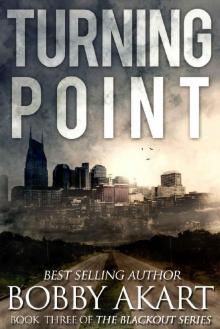 The Blackout Series (Book 3): Turning Point
The Blackout Series (Book 3): Turning Point Patriot's Farewell: A Political Thriller Fiction Series (Boston Brahmin Political Thrillers Book 7)
Patriot's Farewell: A Political Thriller Fiction Series (Boston Brahmin Political Thrillers Book 7)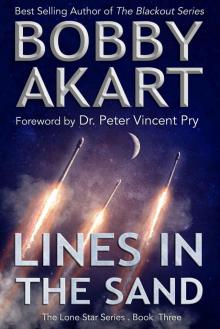 Lines in the Sand_Post Apocalyptic EMP Survival Fiction
Lines in the Sand_Post Apocalyptic EMP Survival Fiction The Mechanics: A Post-Apocalyptic Fiction Series
The Mechanics: A Post-Apocalyptic Fiction Series The Loyal Nine
The Loyal Nine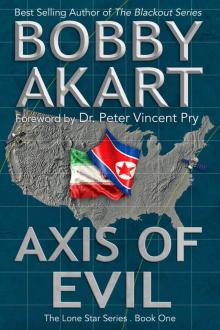 Axis of Evil
Axis of Evil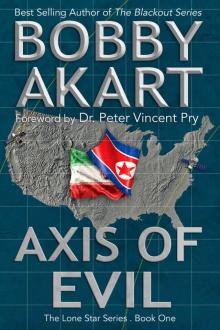 Axis of Evil: Post Apocalyptic EMP Survival Fiction (The Lone Star Series Book 1)
Axis of Evil: Post Apocalyptic EMP Survival Fiction (The Lone Star Series Book 1)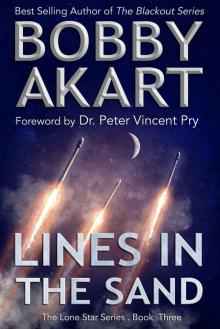 Lines in the Sand: Post Apocalyptic EMP Survival Fiction (The Lone Star Series Book 3)
Lines in the Sand: Post Apocalyptic EMP Survival Fiction (The Lone Star Series Book 3)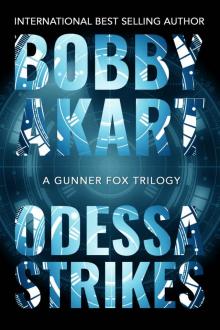 Odessa Strikes
Odessa Strikes The Blackout Series (Book 4): Shiloh Ranch
The Blackout Series (Book 4): Shiloh Ranch Hornet's Nest: A Post Apocalyptic EMP Survival Fiction Series (The Blackout Series Book 5)
Hornet's Nest: A Post Apocalyptic EMP Survival Fiction Series (The Blackout Series Book 5)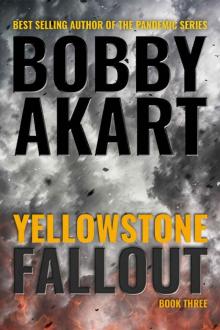 Yellowstone: Fallout: A Post-Apocalyptic Survival Thriller (The Yellowstone Series Book 3)
Yellowstone: Fallout: A Post-Apocalyptic Survival Thriller (The Yellowstone Series Book 3)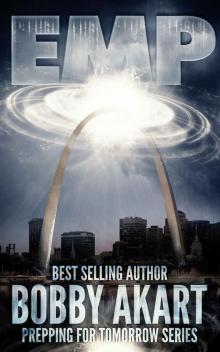 Electromagnetic Pulse
Electromagnetic Pulse Texas Strong: Post Apocalyptic EMP Survival Fiction (The Lone Star Series Book 4)
Texas Strong: Post Apocalyptic EMP Survival Fiction (The Lone Star Series Book 4)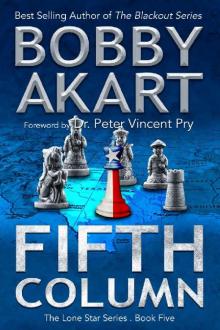 Fifth Column_Post Apocalyptic EMP Survival Fiction
Fifth Column_Post Apocalyptic EMP Survival Fiction Patriot's Farewell
Patriot's Farewell Texas Strong_Post Apocalyptic EMP Survival Fiction
Texas Strong_Post Apocalyptic EMP Survival Fiction Pandemic: The Innocents: A Post-Apocalyptic Medical Thriller Fiction Series (The Pandemic Series Book 2)
Pandemic: The Innocents: A Post-Apocalyptic Medical Thriller Fiction Series (The Pandemic Series Book 2) Shiloh Ranch: A Post Apocalyptic EMP Survival Fiction Series (The Blackout Series Book 4)
Shiloh Ranch: A Post Apocalyptic EMP Survival Fiction Series (The Blackout Series Book 4) Cyber Attack
Cyber Attack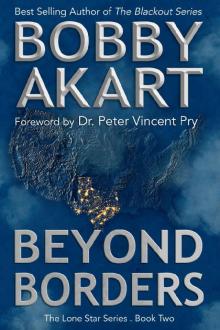 Beyond Borders
Beyond Borders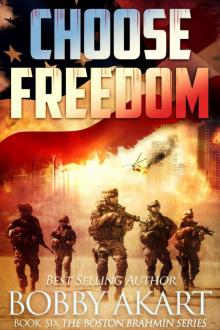 Choose Freedom: A Post-Apocalyptic Fiction Series (The Boston Brahmin Book 6)
Choose Freedom: A Post-Apocalyptic Fiction Series (The Boston Brahmin Book 6)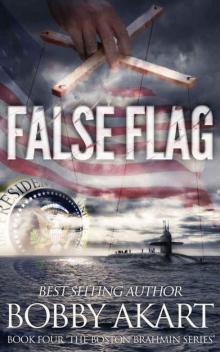 False Flag
False Flag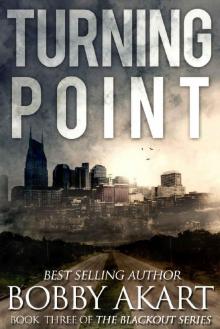 Turning Point: A Post Apocalyptic EMP Survival Fiction Series (The Blackout Series Book 3)
Turning Point: A Post Apocalyptic EMP Survival Fiction Series (The Blackout Series Book 3)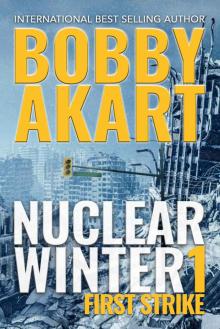 Nuclear Winter First Strike
Nuclear Winter First Strike Pandemic: Beginnings: A Post-Apocalyptic Medical Thriller Fiction Series (The Pandemic Series Book 1)
Pandemic: Beginnings: A Post-Apocalyptic Medical Thriller Fiction Series (The Pandemic Series Book 1) Devil's Homecoming: A Post Apocalyptic EMP Survival Fiction Series (The Blackout Series Book 6)
Devil's Homecoming: A Post Apocalyptic EMP Survival Fiction Series (The Blackout Series Book 6) The Blackout Series (Book 6): Devil's Homecoming
The Blackout Series (Book 6): Devil's Homecoming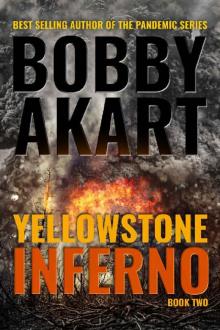 Yellowstone: Inferno: A Post-Apocalyptic Survival Thriller (The Yellowstone Series Book 2)
Yellowstone: Inferno: A Post-Apocalyptic Survival Thriller (The Yellowstone Series Book 2)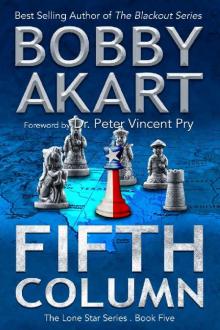 Fifth Column: Post Apocalyptic EMP Survival Fiction (The Lone Star Series Book 5)
Fifth Column: Post Apocalyptic EMP Survival Fiction (The Lone Star Series Book 5)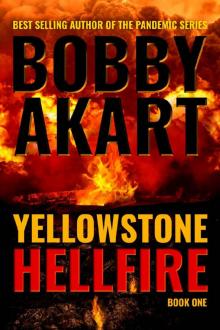 Yellowstone: Hellfire: A Post-Apocalyptic Survival Thriller (The Yellowstone Series Book 1)
Yellowstone: Hellfire: A Post-Apocalyptic Survival Thriller (The Yellowstone Series Book 1) The Blackout Series (Book 2): Zero Hour
The Blackout Series (Book 2): Zero Hour Suicide Six: Post Apocalyptic EMP Survival Fiction (The Lone Star Series Book 6)
Suicide Six: Post Apocalyptic EMP Survival Fiction (The Lone Star Series Book 6) Suicide Six_Post Apocalyptic EMP Survival Fiction
Suicide Six_Post Apocalyptic EMP Survival Fiction Zero Hour: A Post-Apocalyptic EMP Survival Fiction Series (The Blackout Series Book 2)
Zero Hour: A Post-Apocalyptic EMP Survival Fiction Series (The Blackout Series Book 2)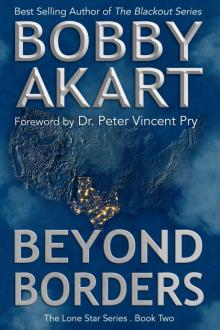 Beyond Borders_Post Apocalyptic EMP Survival Fiction
Beyond Borders_Post Apocalyptic EMP Survival Fiction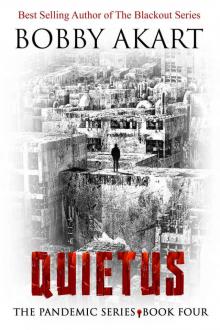 Pandemic: Quietus: A Post-Apocalyptic Dystopian Fiction Series (The Pandemic Series Book 4)
Pandemic: Quietus: A Post-Apocalyptic Dystopian Fiction Series (The Pandemic Series Book 4)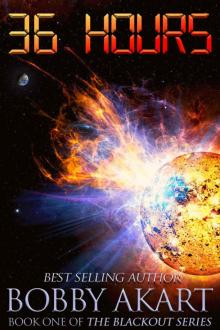 36 Hours: A Post-Apocalyptic EMP Survival Fiction Series
36 Hours: A Post-Apocalyptic EMP Survival Fiction Series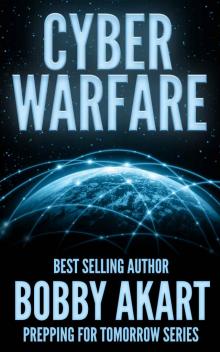 Cyber Warfare
Cyber Warfare